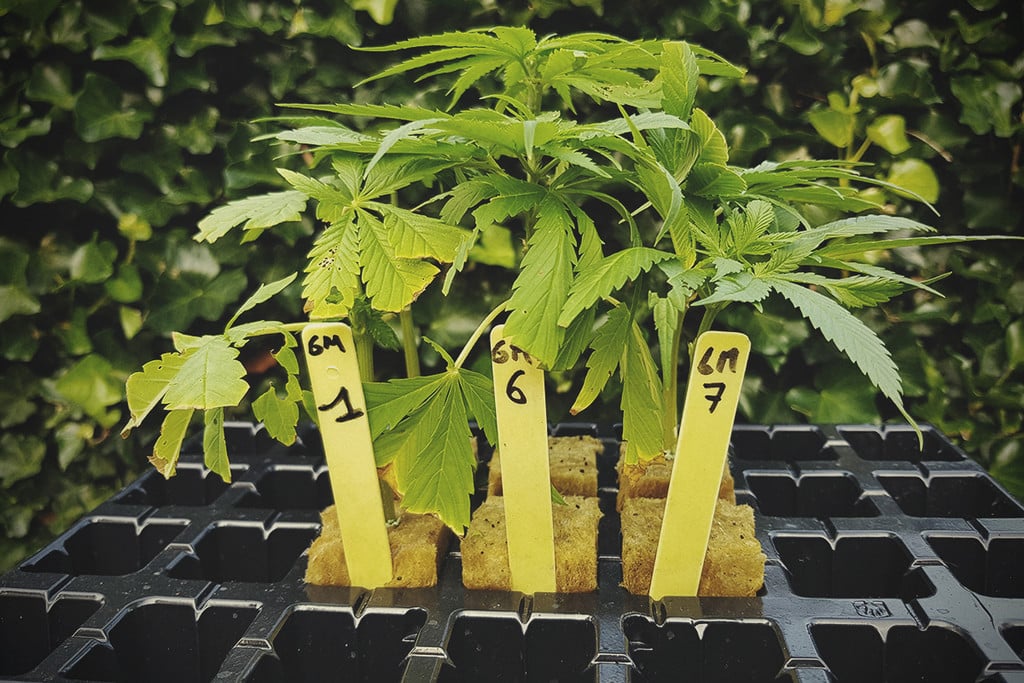.
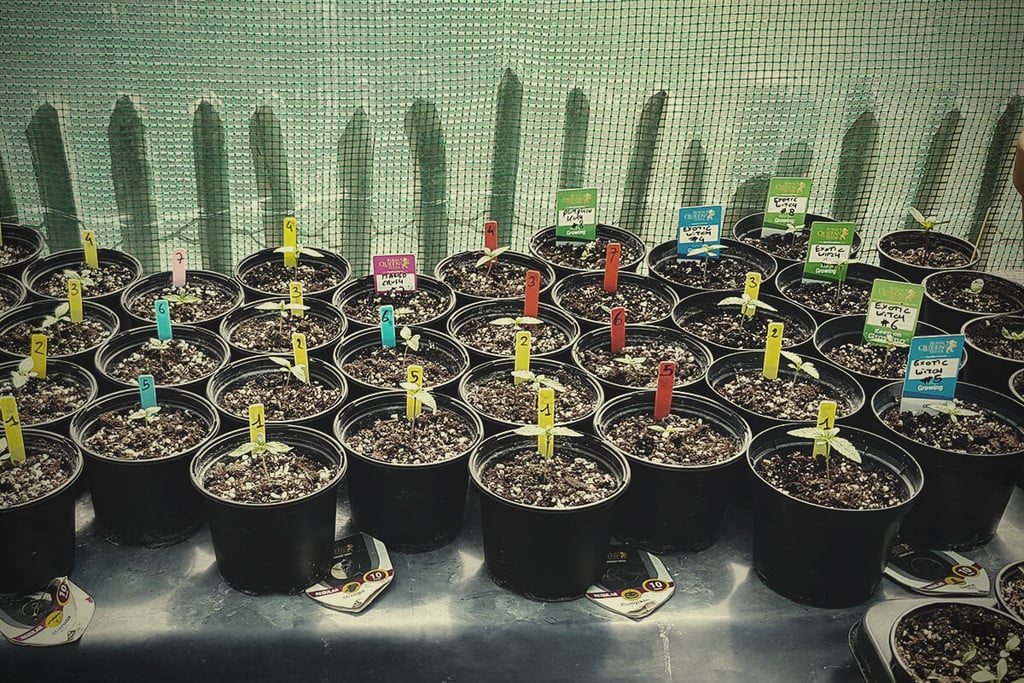
Cannabis Cultivars vs Chemovars vs Chemotypes: A Breakdown
There are thousands of cannabis strains out there. While names such as White Widow, OG Kush, and Amnesia line the shelves of dispensaries and coffeeshops, it turns out that strain names are a poor way of classifying cannabis. Researchers are now coming up with new, more accurate ways to group cannabis varieties based on their chemical profiles.
Contents:
Cultivars, chemovars, and chemotypes. Do you know what these words mean? And what about the differences between them? Discover their definitions, why we need to embrace these terms, and how they’ll benefit the entire industry, from researchers to consumers.
Cannabis seems simple, right? At face value, this humble herb appears like just another plant. But in truth, cannabis is one of the most multifaceted species that humans grow. It doesn’t take long after your first toke to stumble across a vast lexicon that describes the herb itself, all of the different varieties, a long list of growing methods, and even different ways to take it.
Adding to the confusion are the thousands of cannabis “strains” available from seed banks, coffeeshops, and dispensaries. As far as popular culture goes, this widespread classification provides a good description of what each variety offers. Strains that lean toward the “indica” end of the spectrum are known for their stoning and physical effects, whereas those leaning toward the sativa end are viewed as energising and cerebral.
But things move fast in the cannabis industry, with science driving rapid developments. While the term “strain” served a purpose for several decades, it has certainly run its course. The complex nuances of cannabis require more in-depth descriptions and categorisations. Not only do terms such as “chemovar” and “chemotype” provide more insight for researchers, but they offer consumers more reliable information when it comes to buying buds and seeds. Continue reading as we break down why it’s time for new terms, what each of these descriptions means, and why they’re important.
Current Cannabis Classification: A “Strain” on the Industry?
There are thousands of cannabis strains available. Some of the biggest names on dispensary shelves include White Widow, Amnesia, OG Kush, Northern Lights, and Haze. This astounding number of varieties stems from decades of selective breeding and hybridisation. Breeders are constantly identifying desirable traits and crossing different specimens to amplify them. The result? A massive catalogue of cannabis varieties.
The concept of strains is so ingrained in the cannabis industry that it seems immune to scrutiny. Sure, this method remains the most popular way to name and categorise cannabis varieties, but it doesn’t necessarily reflect the true chemical profile, and therefore effect, of each type. While this might not cause an issue for the gung-ho recreational user, it’s not ideal for consumers looking for a consistent and reliable experience.
The lack of consistency resulting from this blurry classification system can leave consumers either gullible or confused. For example, you could walk into one dispensary and pick up a strain named White Widow, and then head into another outlet in the next neighbourhood, pick up the same strain, and experience a different effect. A host of variables can alter the chemical composition in the same cannabis strain, including genetic variability and environmental factors.
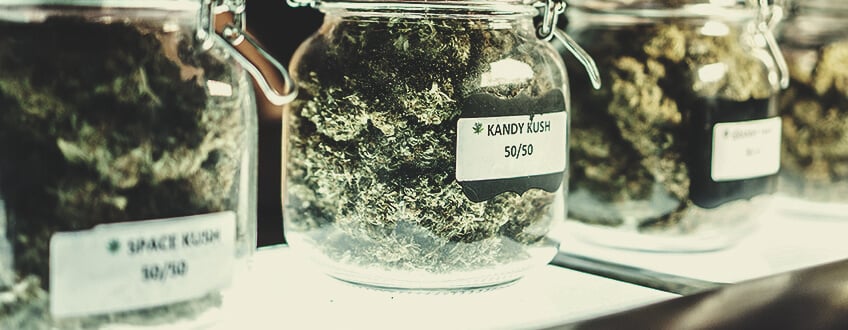
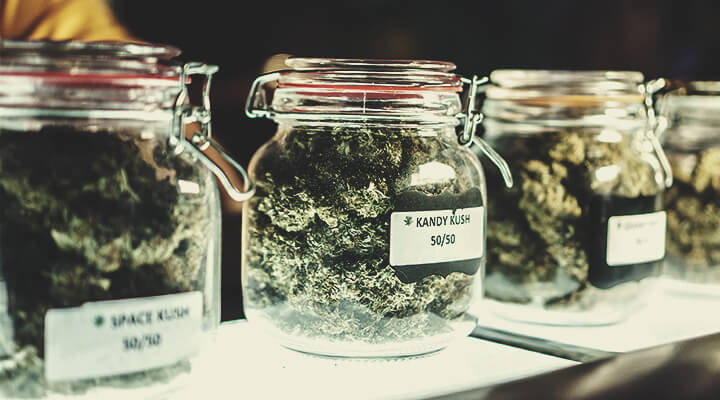
Cannabis Researchers Call for New Terminology
Some cannabis experts are highly critical of the “strain” classification system, and are calling for new ways to label the herb. Dr Ethan Russo, a neurologist and cannabis researcher, has called the idea of strains “nonsense” and states it’s a term better reserved for bacteria. Medical cannabis expert Arno Hazekamp has also weighed in on the debate, reporting that this vernacular system of strain categorisation developed independently from scientific and taxonomic systems[1].
Hazekamp points to several core reasons as to why the concept of strains emerged. As opposed to reflecting a difference in chemical composition, it likely came about as a form of jargon that added a sense of sophistication to cannabis culture[2]—not dissimilar to the way wine connoisseurs describe different wines. He also points toward marketing as a source. Because cannabis generates big bucks, the explosion in strain names likely reflects breeders and growers’ desire to create a niche for their particular product.
Does this mean we should stop using strain names altogether? Not necessarily. These titles serve as a good way to differentiate between characteristics on a basic level. Although they’re not the most accurate, they have a place in outlets such as Dutch coffeeshops and hobbyist seed banks.
However, alternative terms might serve a better purpose for medical users, researchers, and more serious recreational users. As long as consumers are aware of the differences between these terms, they’ll avoid confusion and develop a keener eye when it comes to browsing. To get a glimpse into the future of the cannabis lexicon, keep reading to discover the meaning of alternative terms for describing cannabis strains.
Cultivars vs Strains: What’s the Difference?
Chances are you’ve come across the word “cultivar” while shopping around for cannabis seeds. But how does this word help when it comes to classification? Well, it’s short for “cultivated variety”. If you’re a keen gardener, you’ll have seen this term in seed catalogues and garden centres. As a horticultural term (not a taxonomic designation), it simply refers to a plant selected or tweaked by humans over time.
Selective breeding enables growers to hybridise plants to strengthen specific traits. Not only does this produce plants—including vegetables, cannabis, and fruits—with different characteristics, but it also creates more stable varieties. Cultivars are distinct variants that exist within the same species. They either come from a clone/cutting of the same cultivar, or stable seeds that have been backcrossed for genetic stability.
So, how does a cultivar differ from a strain? Somewhere down the line, cannabis breeders and growers started using the incorrect term “strain” in place of the horticulturally correct “cultivar”. The word “strain” occurs most commonly in the fields of virology and microbiology, where it describes genetic variation within microorganisms. You might sometimes see the word related to breeding outside of the world of cannabis, but here it mostly describes progenies resulting from genetic modification. Overall, the word “cultivar” doesn’t help to improve the classification of cannabis varieties per se, but it does a lot to clear up and correct nomenclature.
.jpg)
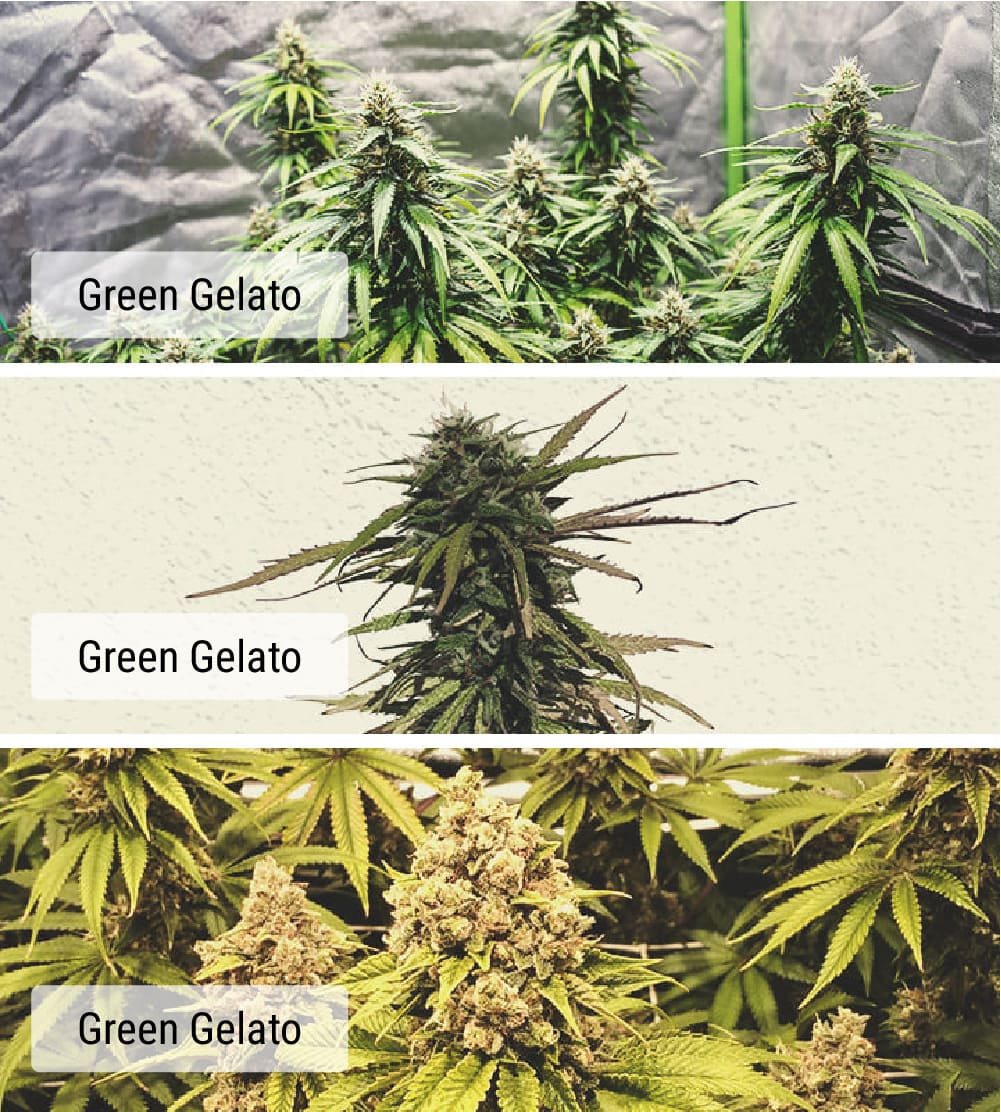
What Are Cannabis Chemotypes?
“Chemotype” stands for “chemical type”. The term first emerged in the 1970s when cannabis scientists sought an easy way to group cultivars together based on their primary cannabinoid. The botanist Ernest Small devised three different chemotypes revolving around the two most prominent cannabinoids in the herb:
| Type 1 | This chemotype contains high levels of the psychotropic cannabinoid THC. The vast majority of modern cultivars autumn into this category. These plants are sought after by recreational users looking to get high, as well as those that use the herb for holistic purposes. |
| Type 2 | This chemotype features a balanced ratio of THC and CBD. Cultivars with this balance are becoming more popular among both recreational and holistic users. They offer a noticeable psychotropic effect, but equal quantities of CBD blunt the peak effects of THC and may reduce negative psychological side effects. |
| Type 3 | This chemotype possesses high levels of CBD alongside low levels of THC. As such, these varieties produce little to no psychotropic effect. Both recreational and holistic users find the clear-headed effects useful and functional. |
| Type 1 | This chemotype contains high levels of the psychotropic cannabinoid THC. The vast majority of modern cultivars autumn into this category. These plants are sought after by recreational users looking to get high, as well as those that use the herb for holistic purposes. |
| Type 2 | This chemotype features a balanced ratio of THC and CBD. Cultivars with this balance are becoming more popular among both recreational and holistic users. They offer a noticeable psychotropic effect, but equal quantities of CBD blunt the peak effects of THC and may reduce negative psychological side effects. |
| Type 3 | This chemotype possesses high levels of CBD alongside low levels of THC. As such, these varieties produce little to no psychotropic effect. Both recreational and holistic users find the clear-headed effects useful and functional. |
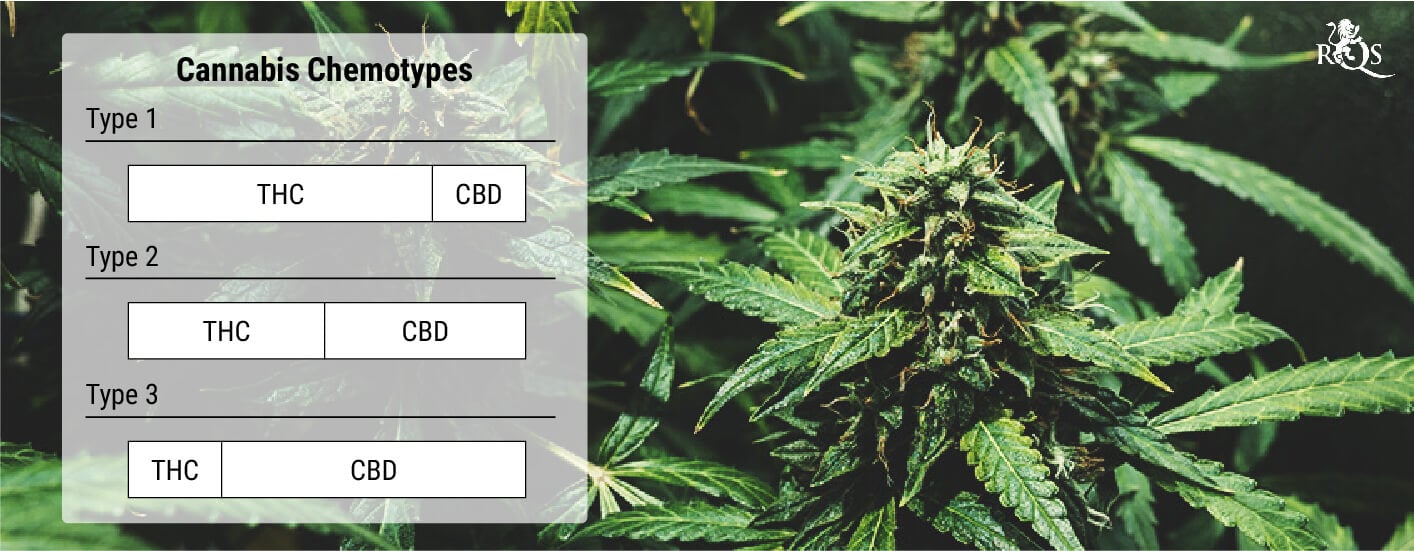
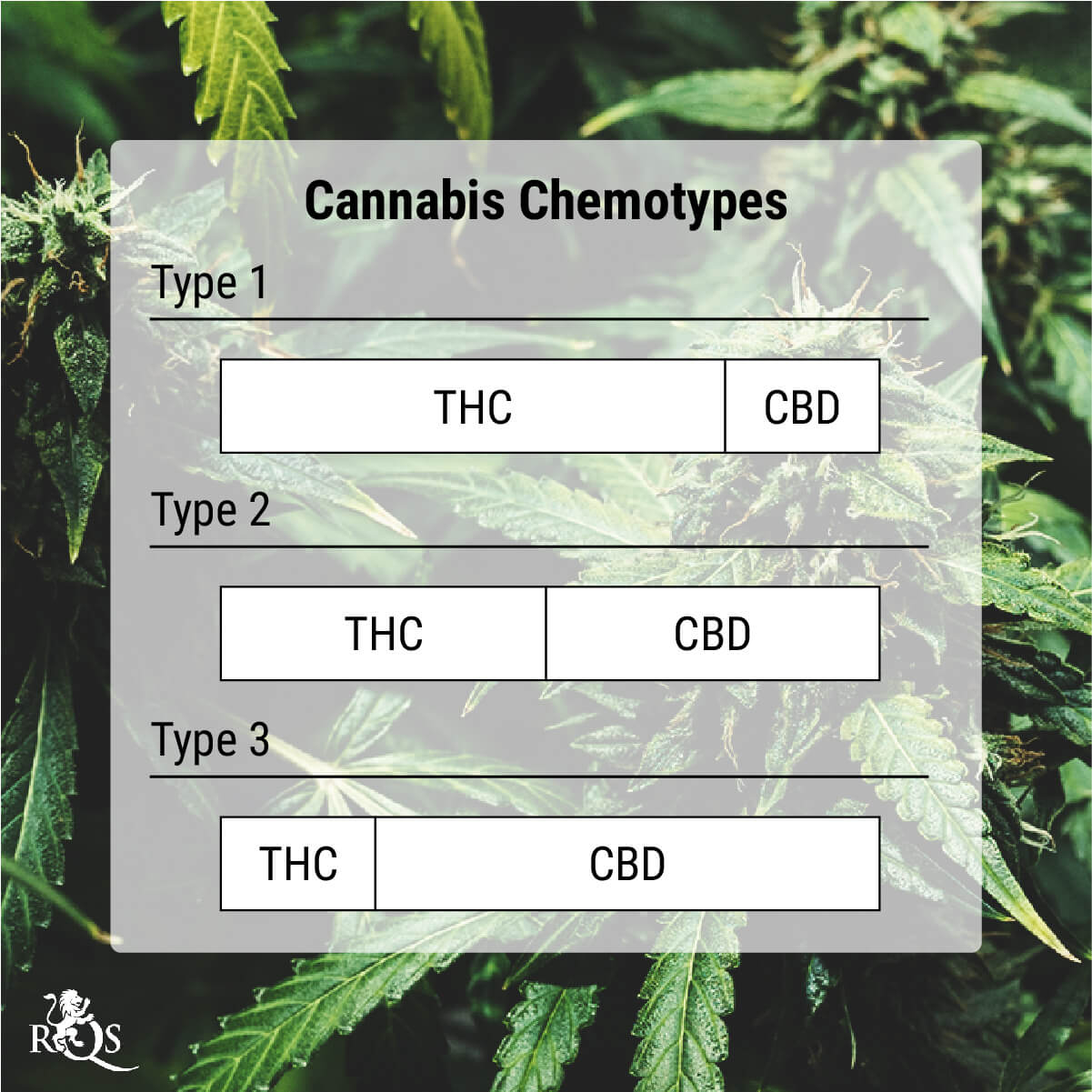
As you can tell, chemotypes are a simple and almost reductive way to categorise cannabis varieties. This method cuts straight to the chase and focuses solely on the dominant cannabinoid. While it misses out on some finer details, it immediately lets consumers and researchers know what they’re dealing with in terms of psychotropic effects.
The three chemotypes above could help consumers in several ways. Users with little preference when it comes to flavour and aroma could simply select a variety based on chemotype to keep things simple. That way, they could get a good idea of the experience that awaits, without getting lost in the world of “strains” and “cultivars”.
But there are more than just three chemotypes! Furthermore, researchers are studying the effects of lesser-known cannabinoids that will eventually receive their own chemotype designation, making matters even more organised and straightforward for consumers and researchers alike. Below are the remaining two chemotypes at present:
| Type 4 | This variety packs high levels of CBG (cannabigerol). Known as the “mother cannabinoid”, the acid form of this compound—CBGA—serves as the chemical precursor to both THC and CBD. CBG is non-psychotropic, and ongoing studies are exploring its anti-inflammatory potential. |
| Type 5 | This chemotype contains—wait for it—no cannabinoids whatsoever! Although this might seem disappointing and useless to some, the type-5 chemotype serves an important purpose. These varieties come in handy when researching and developing new cannabis products. For example, the lack of cannabinoids opens the doorway to producing strains with high levels of terpenes, which may prove useful in clinical settings. |
| Type 4 | This variety packs high levels of CBG (cannabigerol). Known as the “mother cannabinoid”, the acid form of this compound—CBGA—serves as the chemical precursor to both THC and CBD. CBG is non-psychotropic, and ongoing studies are exploring its anti-inflammatory potential. |
| Type 5 | This chemotype contains—wait for it—no cannabinoids whatsoever! Although this might seem disappointing and useless to some, the type-5 chemotype serves an important purpose. These varieties come in handy when researching and developing new cannabis products. For example, the lack of cannabinoids opens the doorway to producing strains with high levels of terpenes, which may prove useful in clinical settings. |
Cannabis Chemovars: A More Accurate Means of Classification
“Chemovar” stands for “chemical variety”. This might sound similar to the definition of chemotype, but this classification goes into much finer detail. Whereas chemotypes describe only the dominant cannabinoid within a variety, chemovars reflect 1–2 of the most abundant cannabinoids and 2–4 of the most dominant terpenes.
Including a larger array of phytochemicals within this definition gives both the consumer and researcher a much clearer idea of the possible effects. Arno Hazekamp has published papers exploring the concept and utilisation of chemovars. He states that medical cannabis researchers face significant challenges that stem from the “single compound–single target” paradigm of pharmacology. While this outlook might help to determine the effects of isolated phytochemicals, it doesn't consider the potentially profound interactions that occur between cannabis-derived compounds.
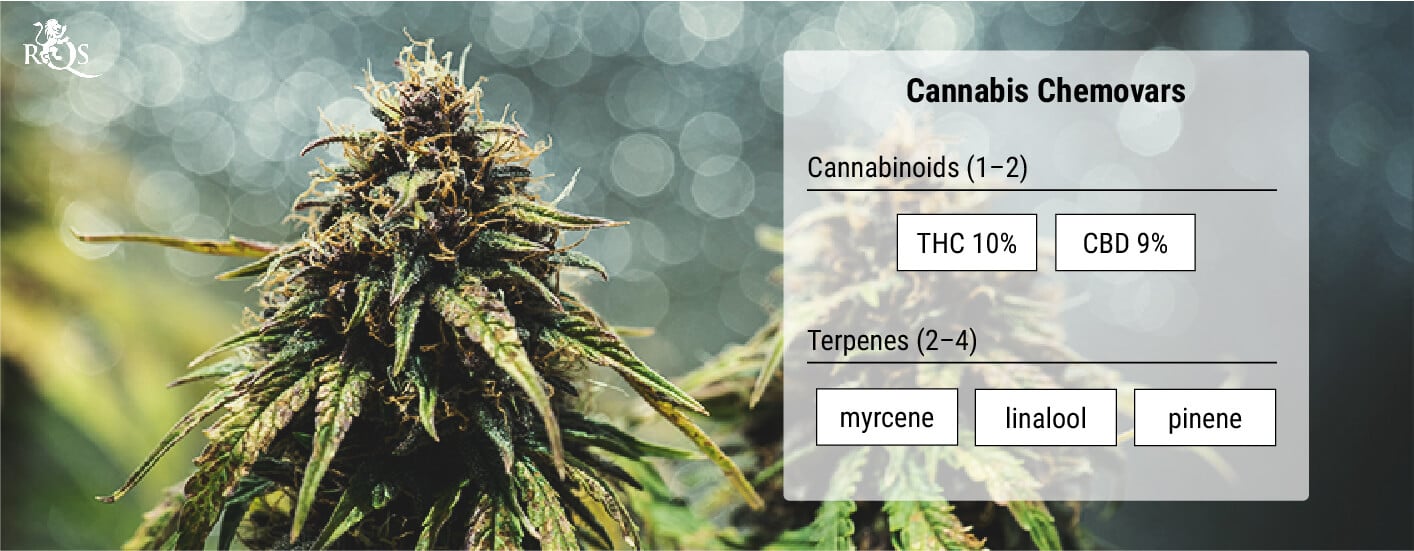
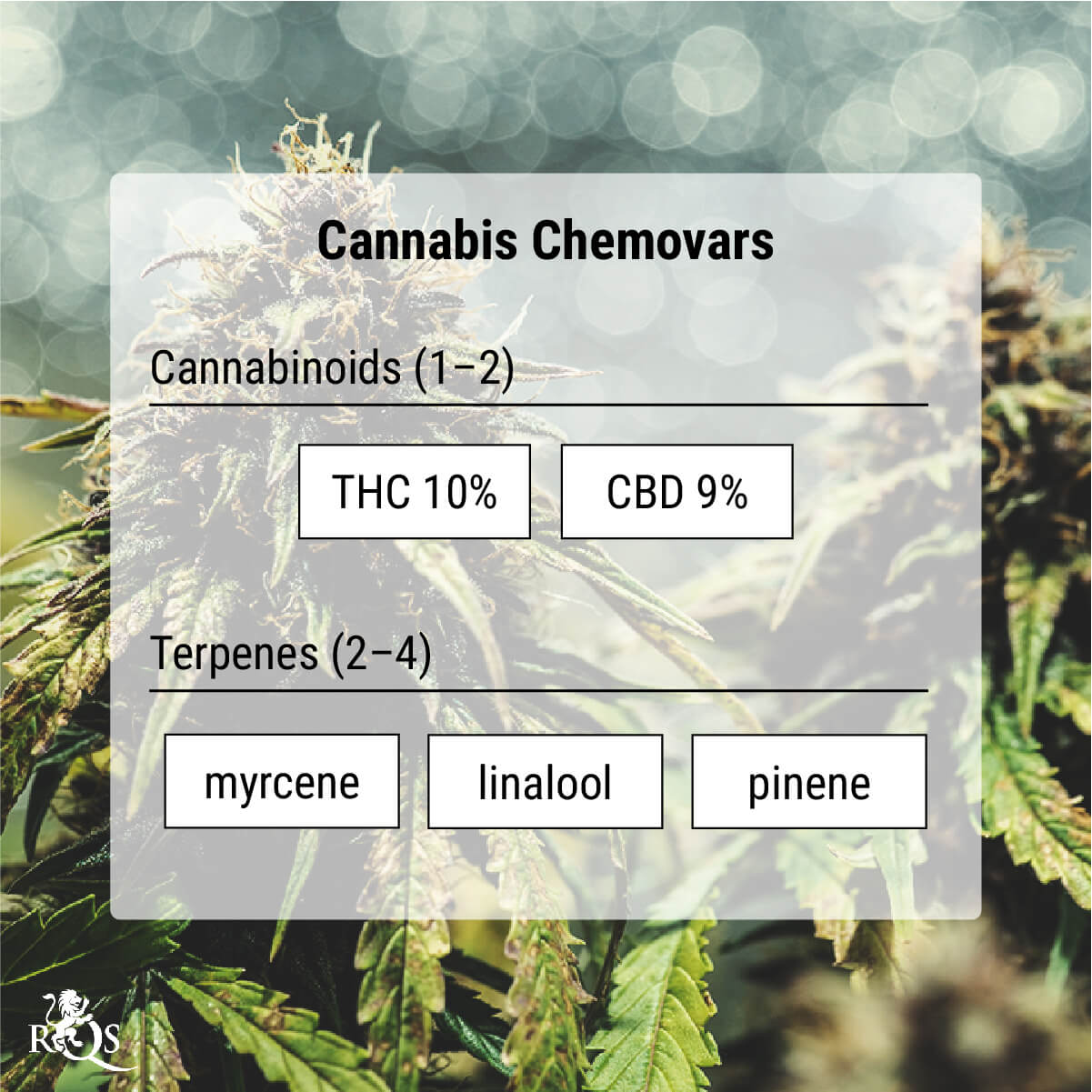
“Chemovar” Considers the Entourage Effect
The term “entourage effect” describes how cannabinoids and terpenes synergise. Dr Ethan Russo has played a large role in popularising this theory, and his paper “Taming THC”[3] documents possible terpene and cannabinoid pairings. For example, studies are exploring the ability of the linalool to enhance the effects of CBD, and pinene to optimise the effects of THC.
Classifying cannabis varieties into known chemovars would do away with the inconsistency of “strains”, while providing much more information than the chemotype model. Hazekamp states that by identifying and quantifying all of the major chemical components in cannabis varieties, we can successfully classify cultivars into a small number of unique groups. This would help consumers get their hands on a more honest and accurate product, and help researchers truly understand the unique effects produced by different chemical mixes.
The idea of chemovars remains in the early stages. Researchers are aiming to first group varieties based on their chemical profiles, and then discover which chemovars work the best for certain conditions. So far, cannabis scientists have determined that terpinolene-predominant chemovars elicit energising effects, whereas those higher in caryophyllene and myrcene are being explored for their ability to reduce headaches.
The chemovar classification will certainly help researchers understand the effects of cannabis better, but how can they help you when shopping for flower or seeds? As producers, seed banks, and coffeeshops continue to see the value in lab testing, they're obtaining more data about their products, in turn giving their customers access to information that will help them immensely in selecting the right product.
We’re quite a way off from this destination right now, but there are signs that this transition is in the works—and it’s a switch that will benefit everyone. Think about this; instead of relying solely on names like “White Widow” or “OG Kush” and hoping you get the effect you’re after, you could see something like “Chemovar Type II: 9% CBD, 10% THC, myrcene and linalool dominant” alongside their famous titles.
- Cannabis: From Cultivar to Chemovar II—A Metabolomics Approach to Cannabis Classification https://www.liebertpub.com
- Exploring the Sativa Indica dilemma https://www.researchgate.net
- Taming THC: potential cannabis synergy and phytocannabinoid-terpenoid entourage effects https://www.ncbi.nlm.nih.gov






























